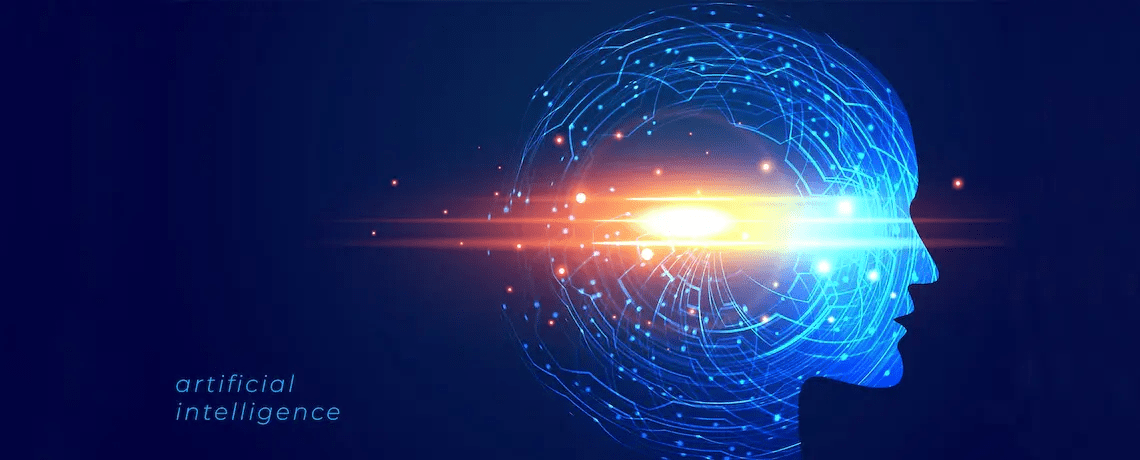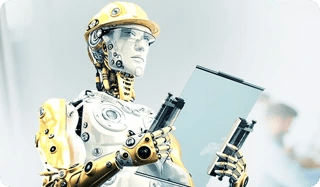What is Artificial Intelligence: Redefining Tech Innovation

In the fast-growing technological world, artificial intelligence has become a revolutionising factor in industries, societies, and life patterns. However, one might ask, what is artificial intelligence? In its simplest definition, AI is a subfield of computer engineering with the goal of devising systems that are able to solve problems involving aspects of human intelligence. From machine learning algorithms predicting consumer behaviour to self-driving cars navigating busy streets, AI encompasses a wide range of applications that are fundamentally changing the world.
This article explores the concept of artificial intelligence, its real-world applications, and its pivotal role in the field of education and research, particularly in the domain of engineering, such as the BTech AI (Artificial Intelligence) programme.
Understanding Artificial Intelligence
In its general context, artificial intelligence is regarded as AI, while it is defined as the ability of machines to perform tasks in the same way intelligent human beings do. The above learning processes include gathering information and techniques of how to apply this information, manipulating the information to arrive at a conclusion, and the ability to check the accuracy of the conclusions made. AI operates on two primary levels:
- Narrow AI (Weak AI): Centred on particular segments of the whole process, such as voice recognition and image classification. For instance, the virtual assistant from Apple, Siri, or Amazon’s Alexa are examples of apps that use narrow AI.
- General AI (Strong AI): A number of fictitious systems that can embody any work that a man can do intellectually. Strong AI as a phenomenon is yet to be developed, but it is the top objective in current AI research and development.
Key Components of Artificial Intelligence
To truly grasp what is artificial intelligence, one must understand its foundational components:
- Machine Learning (ML): A branch of artificial intelligence that allows a system to be trained on data so that it can rectify wrong decisions on its own. In ML, there are certain algorithms that deal with making predictions or, in other words making decisions.
- Natural Language Processing (NLP): This is the ability of a machine to analyse and perform an action based on the input it receives in the form of human language, which makes the use of automated translators and bots possible.
- Computer Vision: Allows AI to analyse computer vision data in the world, like object recognition in images or videos.
- Robotics: Consolidates AI to allow a robot or a computer system to perform tasks for an organisation as well as a home.
The Role of AI in Education
In the academic world, AI is not only a subject of study but also a tool to enhance learning experiences. Courses such as BTech AI are aimed to prepare students for an understanding and development of systems that can function intelligently in order to solve various problems. Such programmes can present one or multiple modules devoted to machine learning, deep learning, data analysis, and programming languages, such as Python.
The usage of AI in learning isn’t confined to academics. Adaptive learning platforms, AI-powered virtual labs, and research tools are enabling a new era of academic exploration. Students pursuing degrees like BTech AI are at the forefront of this revolution, blending theoretical knowledge with practical innovation.
Exploring AI Through a BTech AI Programme
- Comprehensive Curriculum: Aims to explore artificial intelligence topics, data science, machine learning, and robotics.
- Hands-On Training: Allows them to experience real-life problems through internships and also projects.
- Interdisciplinary Approach: Integrates with both computer science and mathematics as well as engineering to get a more encompassing view of the subject.
The students who are studying BTech AI are not simply coding; they are creating a future by engineering problem-solving machines that span across sectors.
Mahindra University: Pioneering AI Education
For students aspiring to excel in the field of Artificial Intelligence (AI), Mahindra University offers cutting-edge programmes tailored to meet the demands of the modern tech landscape. The aims and objectives of the university include stressing innovative research and solving practical problems. Trending courses such as BTech Artificial Intelligence (AI) are a major focus of Mahindra University – which is important in preparing students for the future of the advanced world of artificial intelligence. Here’s a detailed look at the initiatives offered by Mahindra University:
- Cutting-Edge Curriculum:Through its École Centrale School of Engineering, Mahindra University offers a new-age BTech programme in Artificial Intelligence where students can learn superior subjects like machine learning, natural language processing, robotics, and cybersecurity, among others. This way, the students get an extensive wash of modern views on AI, such as machine vision, computational biology, and digital image processing.
- Global Exposure: Partnerships with institutions such as Virginia Tech and Babson College make certain that students are informed of the best practices both locally and internationally, fresh research, and interdisciplinary education.
To Wrap It All Up
As an answer to what is artificial intelligence, it becomes evident that AI is much more than a technological trend; it is the cornerstone of future innovation. Its ability to mimic human intelligence and perform complex tasks with precision makes it a vital area of study and application.
For those eager to dive into this transformative field, pursuing a degree like BTech AI offers an unparalleled opportunity to contribute to groundbreaking advancements. Mahindra University is an example of an institution that helps to prepare future AI talents and approaches education with the aim of turning them into leaders.














































































































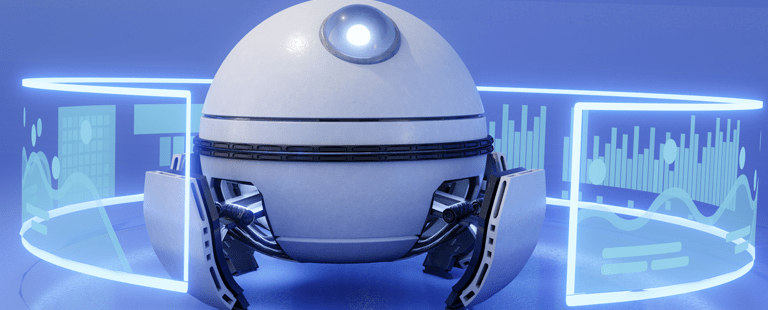




































































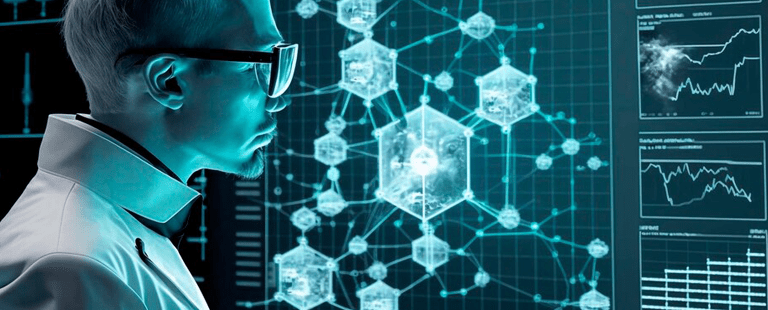








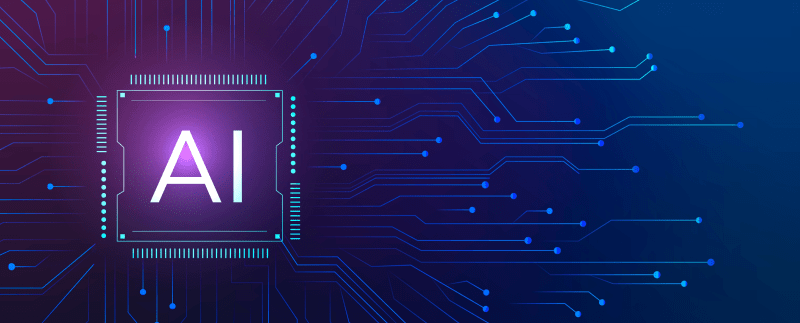

























![Arm_Yourself_with_Deep_Business_Knowledge_&_Insights_with_PhD_Program_in_Business_Administration_at_Mahindra_University[1] Arm_Yourself_with_Deep_Business_Knowledge_&_Insights_with_PhD_Program_in_Business_Administration_at_Mahindra_University[1]](https://i0.wp.com/www.mahindrauniversity.edu.in/wp-content/uploads/2023/04/Arm_Yourself_with_Deep_Business_Knowledge__Insights_with_PhD_Program_in_Business_Administration_at_Mahindra_University1.jpg?resize=1140%2C460&ssl=1)
![Emerge_as_a_Forward_thinking_Mechanical_Engineer_with_B_1140x460[1] Emerge_as_a_Forward_thinking_Mechanical_Engineer_with_B_1140x460[1]](https://i0.wp.com/www.mahindrauniversity.edu.in/wp-content/uploads/2023/04/Emerge_as_a_Forward_thinking_Mechanical_Engineer_with_B_1140x4601.jpg?resize=1140%2C460&ssl=1)
![B.Tech_in_Computer_Science_Engineering_(BTech_CSE)_Your_Gateway_to_Become_a_Computer_Genius_1140x460[1] B.Tech_in_Computer_Science_Engineering_(BTech_CSE)_Your_Gateway_to_Become_a_Computer_Genius_1140x460[1]](https://i0.wp.com/www.mahindrauniversity.edu.in/wp-content/uploads/2023/04/B.Tech_in_Computer_Science_Engineering_BTech_CSE_Your_Gateway_to_Become_a_Computer_Genius_1140x4601.jpg?resize=1140%2C460&ssl=1)
![Digital_Marketing_is_Booming_Globally_1140x460[1] Digital_Marketing_is_Booming_Globally_1140x460[1]](https://i0.wp.com/www.mahindrauniversity.edu.in/wp-content/uploads/2023/04/Digital_Marketing_is_Booming_Globally_1140x4601.jpg?resize=1140%2C460&ssl=1)
![MU_Electrical20Computer20Engineering_1140x460[1] MU_Electrical20Computer20Engineering_1140x460[1]](https://i0.wp.com/www.mahindrauniversity.edu.in/wp-content/uploads/2023/04/MU_Electrical20Computer20Engineering_1140x4601.jpg?resize=1140%2C460&ssl=1)
![BA_LLB_Hons_Course_at_Mahindra_University[1] BA_LLB_Hons_Course_at_Mahindra_University[1]](https://i0.wp.com/www.mahindrauniversity.edu.in/wp-content/uploads/2023/04/BA_LLB_Hons_Course_at_Mahindra_University1.webp?resize=1140%2C460&ssl=1)
![Management_&_Business_Administration_is_Tremendously_High[1] Management_&_Business_Administration_is_Tremendously_High[1]](https://i0.wp.com/www.mahindrauniversity.edu.in/wp-content/uploads/2023/04/Management__Business_Administration_is_Tremendously_High1.jpg?resize=1140%2C460&ssl=1)

![whyistraining&placementcellimportant[1] whyistraining&placementcellimportant[1]](https://i0.wp.com/www.mahindrauniversity.edu.in/wp-content/uploads/2023/04/why20is20training2020placement20cell20important1.png?resize=1140%2C460&ssl=1)
![TheDifferencesbetweenRights&Duties[1] TheDifferencesbetweenRights&Duties[1]](https://i0.wp.com/www.mahindrauniversity.edu.in/wp-content/uploads/2023/04/The20Differences20between20Rights2020Duties1.png?resize=1140%2C460&ssl=1)
![sleep_deprivation[1] sleep_deprivation[1]](https://i0.wp.com/www.mahindrauniversity.edu.in/wp-content/uploads/2023/04/sleep_deprivation1.jpg?resize=1140%2C460&ssl=1)
![SelfLoveBlogImage2[1] SelfLoveBlogImage2[1]](https://i0.wp.com/www.mahindrauniversity.edu.in/wp-content/uploads/2023/04/Self20Love20Blog20Image2021.png?resize=1140%2C460&ssl=1)


























































